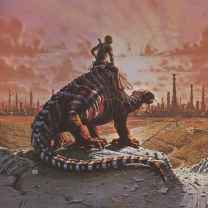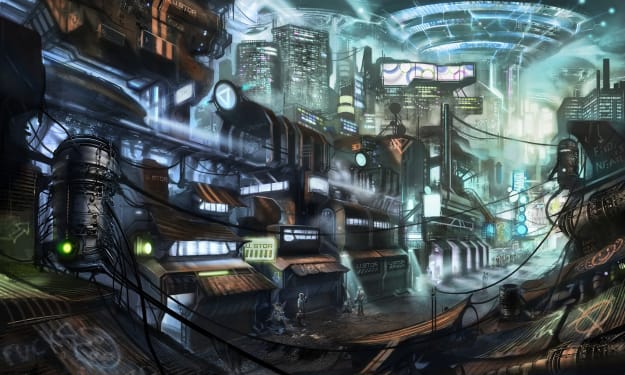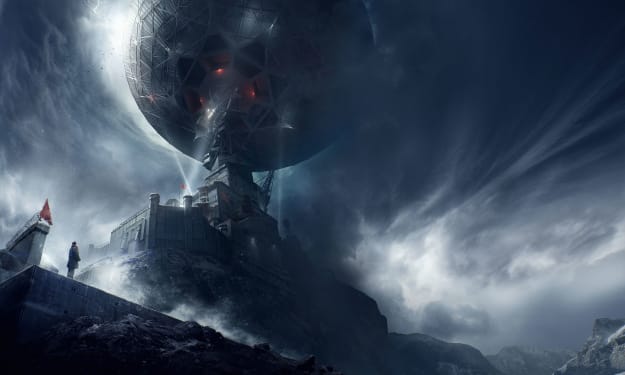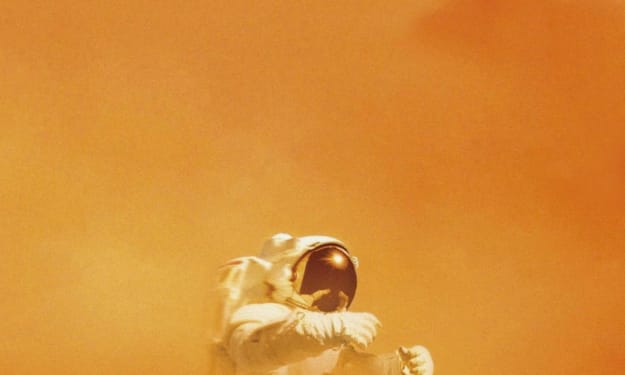Michael Gold
Bio
Degree in Literary Theory from the University of Wisconsin-Milwaukee. Studying Old Testament at Luther Seminary in St. Paul, where he lives with his fiancee.
Stories (5/0)
Reviewing Ann Leckie's 'Ancillary Justice'
To say that Ann Leckie’s Ancillary Justice was one of the most important novels of 2013 would be a bit obvious. The novel won both the Hugo and the Nebula for Best Novel and a host of other awards. It is all the more impressive considering that it is Leckie’s first. The ambitious style, believable characterization, and a gripping conspiratorial plot has excited old fans of science fiction, and even gathered the attention of critics of so-called 'mainstream' literature. True, not everyone has been so impressed. Nina Allan, writing for Arc, felt that the novel gave in too easily to the broadest tropes of the space opera genre. I disagree. I think, instead, that giving in to such tropes while stressing our conception of them is precisely where the novel derives its strength.
By Michael Gold8 years ago in Futurism
Reviewing Neil Stephenson’s 'Snow Crash'
Re-reading Snow Crash by Neal Stephenson a little over a year after reading it for the first time was not only fun, but necessary. Snippets of the book from my first reading had been coming back to me for the last year or so, but so much happens in the space of 469 pages that I was remembering separate plots of the book as belonging to entirely different novels. That isn’t to say, however, that the book is especially confusing, or even complicated. It is, however, dealing with a lot of big, esoteric ideas, and Stephenson’s genius shows itself in his ability to expound on all these ideas in detail without slowing the story down. The exposition and explanation is as entrancing as the fast-paced plot.
By Michael Gold8 years ago in Futurism
Liu Cixin’s 'The Three-Body Problem'
Liu Cixin’s The Three-Body trilogy became one of the most popular science fiction series in China rapidly after its publication. Starting in 2015, English-speaking audiences were finally given the opportunity to see what China had been buzzing about since 2008, when Tor Books published an English translation of the series. The Three-Body Problem is a promising start to a science fiction series: A brilliant plot unfolds against a tightly composed background that binds together physics, philosophy, and history. It is a novel that takes time to read because the philosophical positions of each character have to be carefully considered. The back and forth between the book’s factions shows that the author carefully considered the pressing issues at hand: humanity's place in the world, the value of human civilization, and the repercussions of extraterrestrial contact. The lively translation accomplished by Ken Liu in the English version brings all these elements to life on the page for English-speaking audiences.
By Michael Gold8 years ago in Futurism
Samuel R. Delany's 'The Einstein Intersection' Review
I was always vaguely aware of Samuel R. Delany as one of the towering figures of science fiction, but I never thought very much about him until I read Damien Broderick’s Reading by Starlight for my undergraduate thesis. In the intervening time, I’ve come to discover that Delany, like Le Guin, is one of science fiction’s greatest writers and commentators. Delany has a rare gift for ambitious and brilliant writing combined with an insightful critical output.
By Michael Gold8 years ago in Futurism
Andy Weir's The Martian Review
Andy Weir’s debut novel, The Martian, is something of a success story for self-published authors everywhere. Released by the author as an e-book in 2011, the book was picked up for broader distribution last year by Crown Publishing group, and is now well on its way to the big screen. The book itself is a labor of love for Weir, a well-researched and highly-realistic work of speculative fiction. It endeavors to answer a fairly straightforward question, how could a person survive on Mars if they were stranded there? This question requires knowledge of space travel, orbital physics, botany, and NASA bureaucracy to answer effectively, and Weir quickly establishes his expertise on all of the above. The resulting book is impressive for the amount of preparation it must have required before pen could be put to paper, and manages an engaging story to boot.
By Michael Gold9 years ago in Futurism







